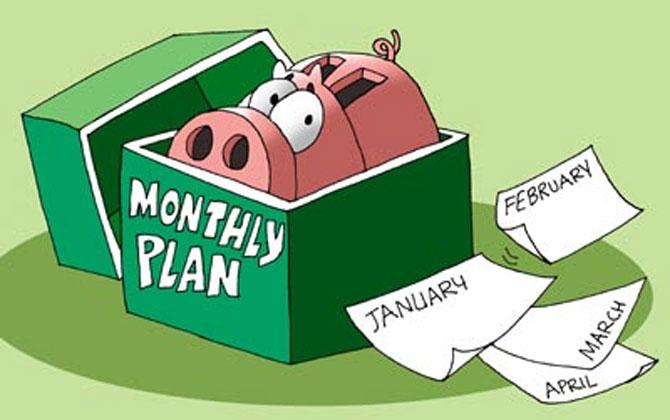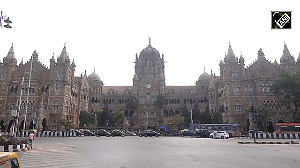 It's important to have at least three months' salary in liquid form. This will help tide over bad times.
It's important to have at least three months' salary in liquid form. This will help tide over bad times.
In 2013, an Assocham survey in Ahmedabad revealed a very telling figure - about 90 per cent of the people in the city did not have a corpus to deal with emergency situations like a job loss, delay in income, death or medical emergency in the family.
While there are no national figures available for this, the Reserve Bank of India's annual report shows that household financial saving rate has declined sharply from 12 per cent in 2009-10 to 7.1 per cent in 2012-13 - clearly, people do not have enough financial savings.
And savings, in form of an emergency fund, can come really handy is several situations.
What is an emergency fund?
An emergency fund, as the name suggests, is one in which you have three months to six months' salary.
"It is perhaps one of the most unglamorous parts of financial planning," says a financial planner, adding that you can take the benchmark as either post-tax or pre-tax salary.
The latter is better because it provides a bigger corpus." And this fund should be dipped into only for emergency expenses.
There could be both short-or-long-term emergencies.
In the short term, there could be a sudden health care expense which has to be borne completely or co-paid. In the long-term scenario, there could be job losses or non-payment of salaries, etc.
Financial planner Suresh Sadagopan emphasises on the need to have an emergency fund for this very reason: "We have a couple of clients who have not been paid for five-six months."
"What do they do in such situations without an emergency fund?" He feels that people who are in certain sectors like advertising should keep six months' salary as emergency.
What an emergency fund isn't
It is not a fund that one can dip into for random expenses. Financial planners say that there is a tendency of investors to withdraw from the fund.
"There is a strong tendency to dip into this fund for reasons like buying a house or investing in the stock market for better returns. But it is important to refrain from them," says a financial planner.
But the question is how does one replenish it? "It is ok to take out from it occasionally but there should be a plan to replenish it as well," says financial planner Jayant Pai.
When the Sensex rises over 25 per cent in one year, there is a strong inclination to take out money from the liquid funds or debt instruments or savings account to invest in the market.
After all, it is a long-term investment that is holding short-term and low-interest bearing investments - quite an anti-thesis of how one defines long-term investment. "If interest rates are going down, one should not shift to say, gilt funds to improve returns. Returns and taxation should not be a considerable."
Accessibility is the prime consideration," says Pai. He believes that an emergency fund is not an investment and taking a view on instruments is a big negative.
How does one build a fund?
According to financial planners, as soon as you start working, start creating the corpus by setting aside small amounts on a monthly basis.
For example, if your first salary is Rs 20,000 a month and you have to create a corpus of three months' salary or Rs 60,000, start by saving Rs 3,000 monthly.
So, you should have emergency fund in 20 months. Say, by then you have got a raise of 20 per cent (Rs 25,000) and new requirement is Rs 75,000, saving for another 5 months will give the requisite corpus.
"From then onwards, it is just a question of putting in some money either on a monthly or quarterly basis, each time there is a salary increase," says another financial planner.
In fact, the timeline would go down due to interest income from bank savings deposits or flexi deposits.
Sadagopan says that there are enough investors who do have any emergency fund till the forties.
"When they come to us, some have enough in the banks or in investments but nothing as an emergency fund. In such cases, we take out money from investments and create an emergency fund. Additionally, we advise them to put some money aside on a monthly basis as well."
What kind of instruments should you put it in?
Since an emergency fund is designed to cover any financial shortfall due to an unexpected expense, ideally it should be instruments that provide guaranteed returns and available immediately.
So, savings bank deposits, flexi-deposits and liquid fund deposits qualify.
And as time passes, by one should invest in short to medium-term debt funds.
Besides other reason, the big plus of having an emergency fund is that it provides you peace of mind because there is a satisfaction that there is liquidity available which can be brought to use on a short notice.
You don't have to scramble to get money and don't have to turn to credit cards which charges astronomical interest rates if there is rollover of balance. Start small, but start now.
EMERGENCY FUNDING
Age: 25-35
How many months of funding are suggested: If a person is employed and the company/industry he is working in is stable, then three months of all expenses, including EMI, should be the emergency/liquidity funding amount. If a person is in business or is in an industry where job security is low, an extra three months are suggested
Instruments: Bank savings account/flexi deposit for up to two months of expenses and liquid funds for one-month expenses
Age: 36-45
How many months of funding are suggested: Same as for the 25-35 age group
Instruments: Bank savings account/ flexi deposit for up to two months of expenses and short-to medium-term debt funds could be used for additional liquidity.
This is because there is a good chance that one may not dip into this liquidity margin for a long time and they could hence be invested in these instruments which can earn better returns.
If required, they can be liquidated
Age: 46-55
How many months of funding are suggested: Same as for the 25-35 age group
Instruments: Bank savings/ flexi deposits - 2 months' expenses; 1-month expenses in short-/medium-term debt funds/arbitrage funds.
Further liquidity, if required, can be provided by debt funds invested in the portfolio. We are keeping it open like this, as situation over and above 3 months liquidity margin may be rare and it is better to stay invested in good yielding funds, which are not expected to be touched
Age: 56-60
How many months of funding are suggested: Same as for the 25-35 age group
Instruments: In bank savings/ FDs/liquid funds/ debt funds; bank savings and flexi FDs should be at least three months expenses and the rest can be in other instruments













 © 2025
© 2025